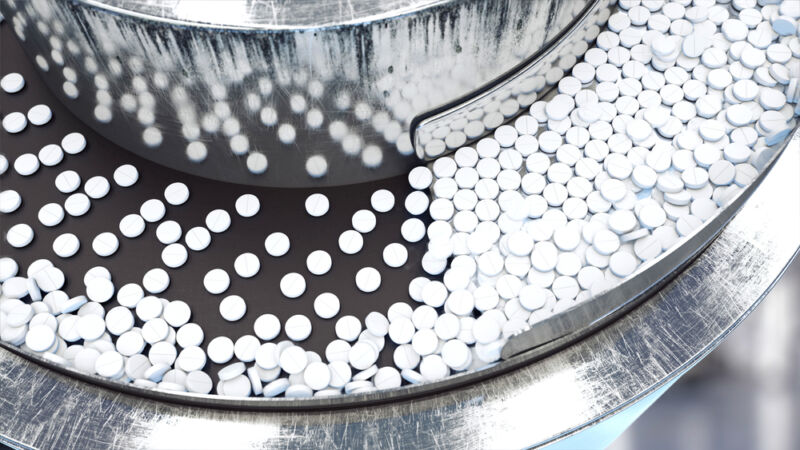By Eric Stoop, CEO of EASE, Inc
For many years now, the pharmaceutical industry has relied on standard operating procedures to ensure its quality control and manufacturing methods are robust and stringent. However, these measures may not be as effective as they once were.
One doesn’t have to look very far for an example where current quality control measures were shown not to be stringent enough. Just earlier this year, the infamous case of the compromised COVID-19 vaccine made that abundantly clear. a contractor, Emergent Biosolutions, was working with multiple pharmaceutical companies to develop different types of vaccine. However, because of a lack of an effective separation process, both vaccines were accidently combined, rendering them ineffective. The result? More than 15 million single-dose covid vaccines discarded at a critical time.
The resounding takeaway from this unfortunate episode is that quality measures must be improved by the pharmaceutical industry. The time is now. After all, it is an industry where the stakes could not be higher. If layered process audits (LPAs) had been in place at Emergent Biosolutions, it would have ensured that there were eyes on all areas of the critical manufacturing process.
How LPAs can help
Of course, hindsight provides perfect vision. But the simple fact is that LPAs are proven to prevent similar manufacturing escapes for the pharmaceutical industry happening again. Relating specifically to the above example, regular checks on not only the product or output, but also verification of the plant’s manufacturing processes, would have caught the mistake before it left the factory. It is, therefore, important that the industry looks at adopting digital LPAs sooner rather than later.
When properly implemented, LPAs are the most effective way to ensure that processes consistently follow approved standards. Reducing waste and rework, improving quality, and driving cultural change. Essentially, LPAs ensure that the approved process and formula – in the case of medications – are followed, with a heavy focus on the human aspect of the manufacturing process. They also, though, flag any discrepancies before defective products are produced, saving time and money as well as reputation. LPAs are a verification that appropriate controls are in place and a company’s standard process is being followed in accordance with documented requirements.
LPAs are widely used in automotive manufacturing, and they are now finding their way into other sectors at an increasing rate too. This is especially true of the aerospace and consumer products industries. Most frequently, quality leaders from the automotive industry migrate to other sectors and implement LPAs as a best practice at their new organisations, knowing they are a vital tool for increasing productivity and ensuring quality is maintained.
Taking inspiration
The pharmaceutical industry can learn a lot from the automotive sector, which has long been a global frontrunner in applying and evolving quality improvement tools. In addition to Lean manufacturing processes, the automotive sector has been implementing LPA programmes, in its various evolutionary forms, for more than three decades.
Due to the competitiveness of the sector, automotive companies have always needed to evolve their manufacturing process to maximise quality whilst minimising costs. Demand for vehicles shows no signs of abating either, at a time when modern safety standards and requirements have never been more stringent. Corners can’t be cut.
Through the adoption of LPAs, the automotive sector has enjoyed several benefits, including:
- Reduction of waste
- Improved cash flow
- Improved product quality and customer satisfaction
- Increased ‘right the first time’ results
- Reduced quality incidents (scrap, rework) and escapes
- Reduced the overall cost of poor quality
LPAs have also allowed the automotive sector to evolve with the times. The pharmaceutical industry, for which the stakes are so high, needs to follow the automotive sector’s lead and benefit from the impact LPAs can make. The first steps pharmaceutical manufacturers should take to ensure LPA success are:
- Form the LPA team
- Conduct a Failure Modes and Effects Analysis (FMEA) to determine where LPAs are needed
- Identify high-risk trends
- Perform a feasibility assessment
- Readjust and refine the LPA programme to suit requirements
- Begin the development process, using the instructions laid out in the LPA programme
- Test, test and test again until the manufacturing process is perfectly refined
Accelerating success
If ever evidence was needed that the pharmaceutical industry’s processes were in need of change, then the COVID-19 vaccine case provides it. With the pressure and stakes so high for pharmaceutical companies to produce and roll out vital medication, it is time for manufacturing processes to improve. Only then can the industry avoid vaccines and other critical medicines being discarded due to ineffective production processes.
By following the example of the automotive industry, the pharmaceutical industry can take the initial steps to adopting a robust LPA programme and ensure that cases like the contaminated COVID-19 vaccine are a thing of the past.




